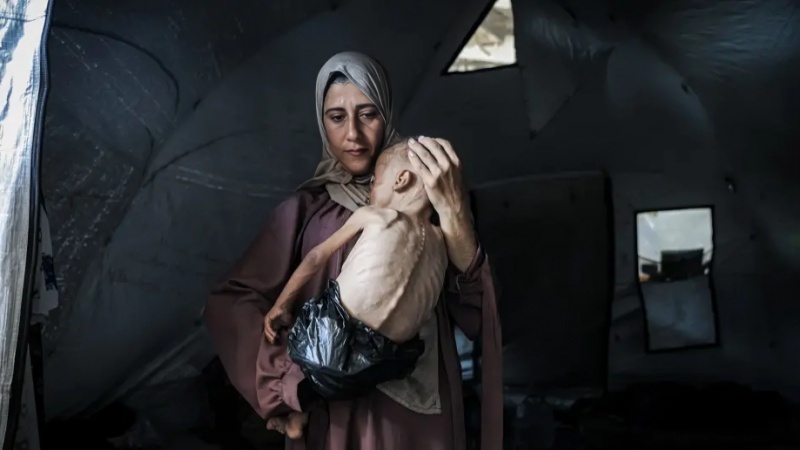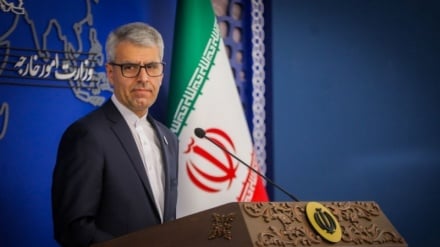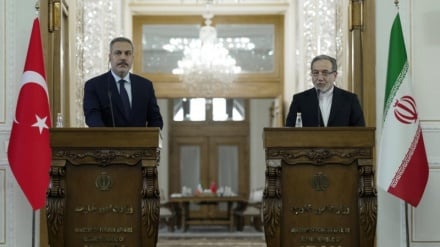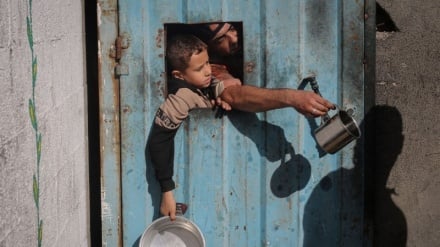Gaza: Smallest strip, strongest lesson in patriotism
-

Gaza: Strongest lesson in patriotism
Pars Today – Gaza is no longer merely a besieged strip of land; it has become the voice of every man, woman, and child who, amid the rubble, raises the cry of steadfastness and belonging to their homeland.
According to Pars Today, on a street that hardly resembles a street anymore, an elderly Palestinian woman, her back bent yet walking with resolve, stands before a camera recording history. She declares: “I will spill the last drop of my blood on this soil, but I will never leave my land.”
Her voice echoes thousands of others, voices that see Gaza not merely as a besieged city, but as the stage of the greatest lesson for humanity today: the lesson of remaining rooted in one’s homeland.
Human dimension: Small stories amid great tragedy
Gaza today is defined less by maps or social reports than by the details of everyday life. A ten-year-old boy sits on the broken steps of his home, and we do not know which family member walks beside him on this difficult path. A brother stands in line for water. A father clutches the key to his house— a house that no longer exists, yet remains part of his very identity.
Seen together, these images are more than tragedy; they are symbols of steadfastness. In Palestinian discourse, this steadfastness is called Sumud—a word that goes beyond military resistance to mean staying rooted in the land and preserving one’s heritage.
Poetry and literature of Palestinian resistance
Since the mid-20th century, Palestinian poets such as Mahmoud Darwish, Samih al-Qasim, Fadwa Tuqan, and others have returned again and again to the same theme: the unbreakable bond between people and their land. In Palestine, poetry and literature have never been mere art forms; they have been the political and cultural language of a generation denied access to media or official forums.
So when we see a Palestinian woman standing amidst the rubble, holding her infant in her arms, she is in fact voicing the very truth that these poets once expressed in metaphor and verse: that the homeland is not something to be carried away or sold—it is the place one must remain in, even under the harshest conditions.
The meaning of “staying” in politics and history
For many in Gaza, leaving one’s home is not merely about saving one’s life; it carries the weight of surrendering history itself. The memory of the *Nakba* in 1948 still lingers, when hundreds of thousands of Palestinians left their homes in the hope of returning—yet never could. Today, those who choose to remain amid the rubble are, in effect, entering into a dialogue with history: let us not repeat what once befell us.
Gaza today can be seen as one of the greatest paradoxes of the century: a small strip of land that is at once “the deadliest place on earth” and “the loudest classroom of love for the homeland.” That elderly woman standing amid the rubble may never find her name written in history books; yet she, and thousands like her, have given new meaning to words: that the homeland, even in the silence of failing oxygen machines and in the long lines for water, remains alive.


